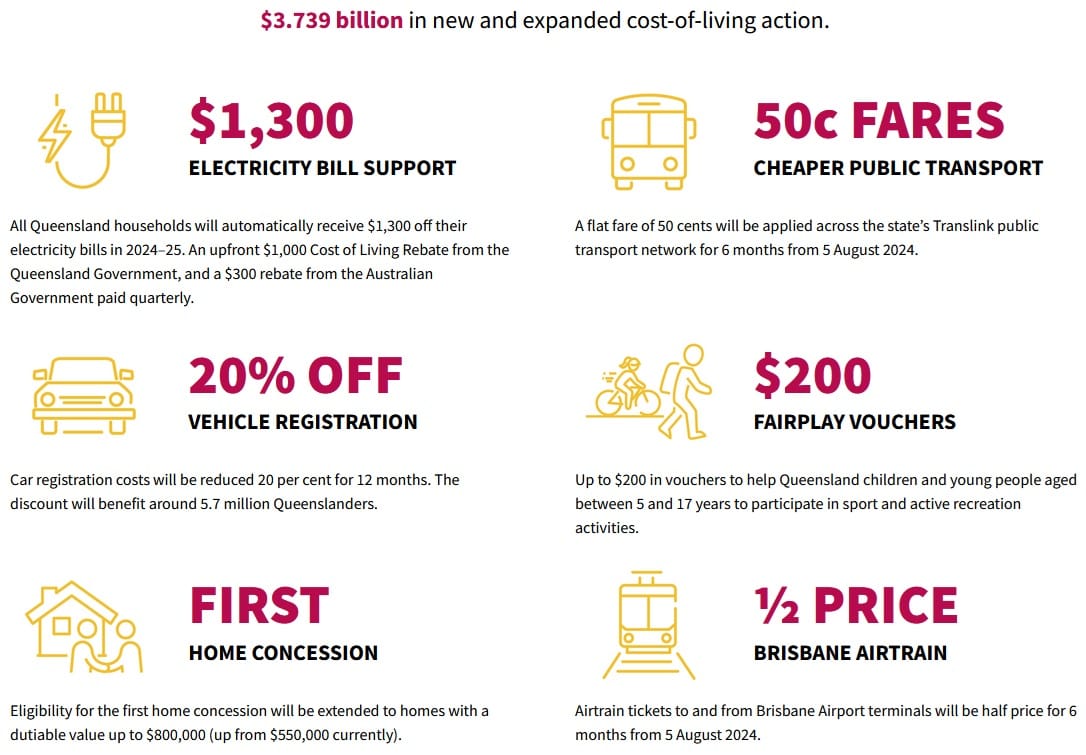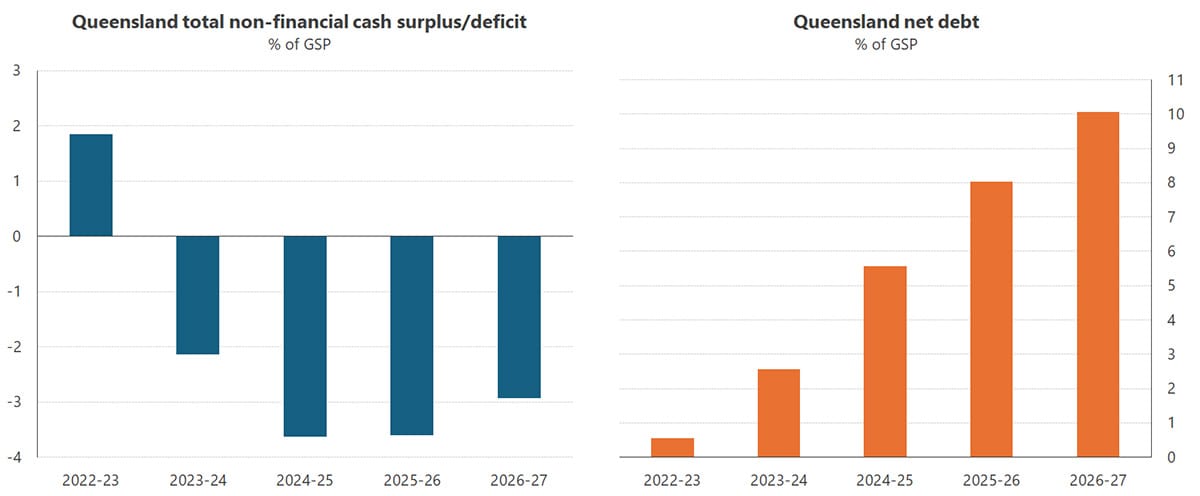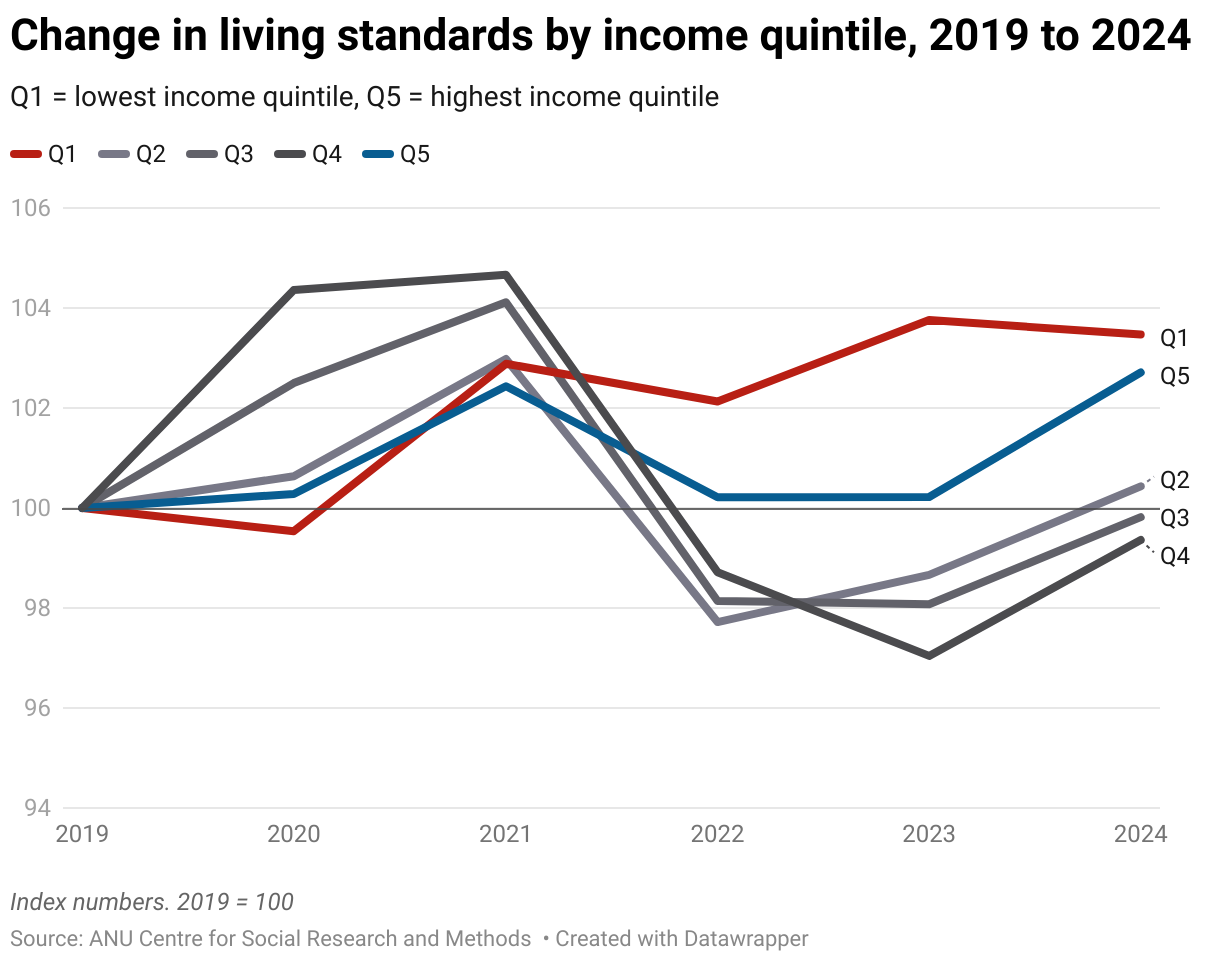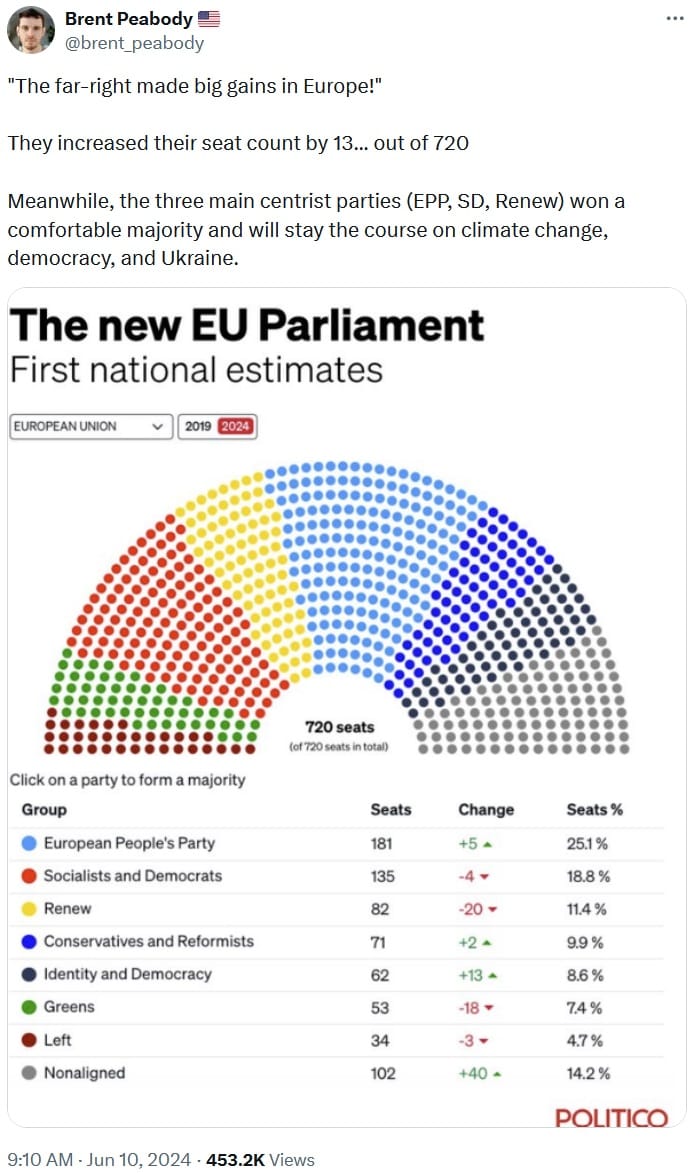Friday Fodder (23/24)

Before getting into this week's Fodder, I just want to let you know that I'm in British Columbia, Canada for the next few weeks visiting family and friends. I intend to keep the usual publishing schedule going, except for the week starting 24 June when I'm going to be in a remote region with no connectivity.
If any North American readers want to meet up, I'll mostly be in Victoria but also briefly in Vancouver and Seattle – do get in touch!
Anyway, on to this week's happenings.
1. Why we need fiscal rules
Queensland's Premier, Steven Miles, must be looking to spend his way to an election victory in October. There is only one other justification for his recent Budget (which I'll get to), which is a cash-splash extraordinaire.
I've written about Miles' misguided policies before, and how in his brief time in charge he has, for whatever reason, felt the needed to stray wildly out of his lane on several issues, including even telling the RBA how to do its job.
But none of that compares to this Budget of pure desperation from a government that is so far behind the opposition that they're nearly unbackable favourites with the local bookies. So much of the new spending won't do anything for the people of Queensland beyond giving them a temporary sugar rush:

But as with all sugar highs, there will be much larger costs when the inevitable comedown happens. While this new discretionary spending deliberately – shamelessly – targets items that will reduce the state's measured inflation, it will reignite actual inflationary pressures because it's being paid for entirely with new debt:

But those pressures won't show up in the CPI until after the election, when it's quite likely that someone other than Miles will be Premier. If not a re-election Budget, then the only motive for such fiscal recklessness is to poison pill the economy in the hope that it will damage the next government's chances at re-election in four years. If so, all the more reason for fiscal rules to prevent this sort of underhanded, costly political opportunism from happening again.
But what's done is done. Premier Miles and his Treasurer, Cameron Dick, have betrayed their social contract with the state. Come November, I trust that the people of Queensland will express their displeasure accordingly.
2. Are you better off?
How have Australian households fared, on average, since the pandemic? A new study published by the ANU's Centre for Social Policy Research took a look, finding that:
"[O]verall living standards increased from 2019 to 2021 but then fell sharply in 2022 with a further small fall in 2023. Overall living standards were 0.6% lower in December 2023 than in December 2019."
The cost of living crisis has disproportionately fallen on households in the middle income quintiles, with the bottom and top households actually improving their lot:

Why? Those in the bottom tend to have their incomes and government transfers indexed to inflation, while those in the top had investments that did well.
Many of the 'losers' in the middle three quintiles are home-owners with a mortgage, who suffer the most when the RBA raises the cash rate. Comparatively, renters and outright owners have seen their living standards climb 2.9% and 8.5%, respectively:
"Possibly for related reasons, older Australians have done much better than working-aged Australians, and the youngest did better than the middle-aged."
The post-pandemic has been a good time to be a Boomer; no wonder they're spending so much!
3. Dictators and their completely legitimate, hidden wealth
Take this one with a healthy pinch of salt but according to a forthcoming US Congressional report, China's President Xi Jinping – mastermind of a 12-year anti-corruption campaign that conveniently removed all challengers to the CCP throne – may be giving old mate Vladimir Putin a run for his money in the race to see who can steal the most from their people:
"Mr. Xi's estimated $707.2 million in hidden wealth is said to have been spread among relatives, including his wife, Peng Liyuan, and daughter, Xi Mingze.
Most of the assets are owned by Mr. Xi’s eldest sister, Qi Qiaoqiao, her husband, Deng Jiagui, and their daughter, Zhang Yannan."
But according to the report, Xi has nothing on former Premier Wen Jiabao, who may have siphoned off "an estimated $2.7 billion held by relatives". Australia even gets a mention, with Xi's cousin and Australian citizen, Ming Chai, potentially involved in laundering some of Xi's hard-earned wealth down under.
Dictators tend not to live very long, free lives when they're eventually 'retired' (not always voluntarily), but their relatives certainly do!
4. Modern day Bootleggers and Baptists
"The Bootlegger and Baptist theory, an innovative public choice theory developed more than 30 years ago, holds that for a regulation to emerge and endure, both the 'bootleggers,' who seek to obtain private benefits from the regulation, and the 'Baptists,' who seek to serve the public interest, must support the regulation."
With that quote in mind, here's a modern version of the problem courtesy of the ABC:
"Nowakowski, a nature lover who says he's been arrested fighting for forests, shares the stage with ultra-conservative federal MP Colin Boyce, a man who claims burning fossil fuels creates "plant food".
"We're an odd couple," Nowakowski admits. "I shake my head in disbelief. I cannot believe that I'm in this situation."
It's an alliance at the more extreme end of the political spectrum. But it's being replicated right across the country as vocal groups mobilise to frustrate Australia's already slow rollout of renewables."
I wrote back in January that these groups were going to join forces and prevent the government's plans to roll out renewables, specifically wind farms: it needs to build "one new wind turbine every day for the next six years to reach its 2030 emissions target".
If our governments didn't quickly start thinking in terms of trade-offs, then these groups would delay projects for long enough to make them prohibitively expensive. Instead, our various governments appear to be, project after project, ceding to groups that explicitly state they are not considering trade-offs [emphasis mine]:
"In an attempt to show unity, 14 environmental groups (including ACF, Greenpeace, WWF and Wilderness society) on Monday released a joint letter pledging support for renewable energy, but warning individual projects can't come at the expense of plants, animals, oceans or forests."
Rather than countering these groups with a rational analysis of the costs and benefits, our governments meekly accept the view that not a single bird is worth sacrificing, knocking back proposals at the first sign of local resistance. So, I'm reasonably comfortable concluding that the government's 2030 emissions target will not be met.
5. The European Union swings to the right
The European Parliament elections this week saw people in both Germany and France shift their votes towards right-wing parties.

The results led France's President, Emmanuel Macron, to call a snap election after the "dramatic shift". But as always, context is important:

A move to the right, sure; those on the right will now have more influence on which policies those centrist parties pursue – e.g. at the margin I'd expect more of a focus on the cost of living and migration than, say, climate change – but nevertheless, the European Parliament will remain dominated by centrists who will mostly "stay the course" (even current President Ursula von der Leyen looks set to be re-elected).
6. If you missed it, from Aussienomics
Why we may not be done with inflation – Interest rates have come down in Canada and the eurozone. When will Australia follow suit?
Is it time for housing coercion? – A more forceful, top-down approach might be the solution to Australia's housing crisis.
Have a great weekend.


Member discussion